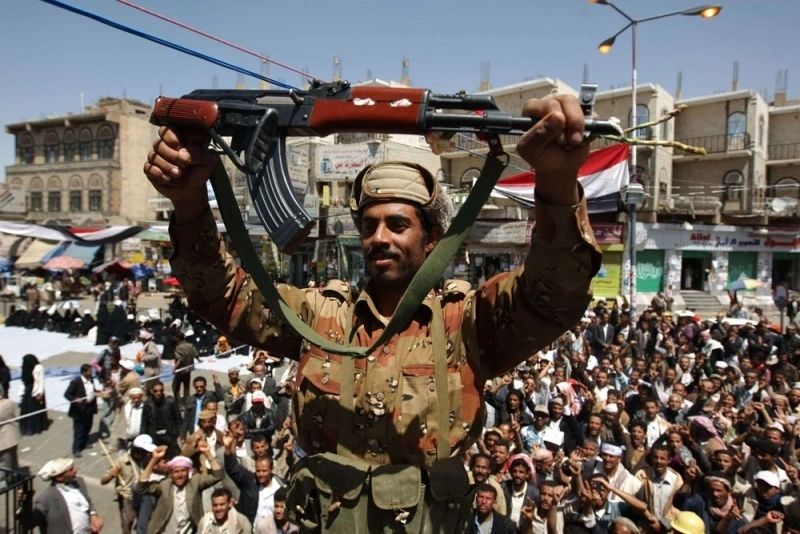
Upon the telephone call between the US Defense Secretary Lloyd Austin with Abu Dhabi’s Crown Prince Mohammed Bin Zayed, concerning the terrorist Houthi/Iranian attack on the United Arab Emirates (UAE) on January 17th, the Pentagon issued an official statement in the name of the Department of defense officials, by which it denounced the terrorist attack that killed three innocent civilians and targeted Abu Dhabi’s civilian infrastructure.
Austin, addressing the UAE government stated “we remain committed to the UAE’s security and ability to defend itself, and stand united with our Emirati partners in defending against all threats to their territory”.
On the other hand, the United States Secretary of State Anthony Blinken had launched his diplomatic term by stating: “I will work on re-evaluating the Houthis’ terrorist group listing by former US President Trump’s decision.” As a matter of fact, the Biden Administration hastened in removing the Houthi “Ansar Allah” group in Yemen from the list of Foreign Terrorist Organizations, during its first month. Did Blinken err in taking such a quick decision and will he rescind it? We will know the answer in the near future, upon the Emirati and Saudi reaction to the constant attacks on their civilians and properties by the Houthis who are militarily and ideologically supported by the Iranians. These attacks are a message from Tehran to put pressure on stakeholders in order to gain additional benefits during its nuclear deal negotiations.
During these complicated circumstances, and to prevent an actual war in a strategically sensitive region, it is important for the Biden administration to seek solutions to the problem in Yemen through two channels:
– First, continue pressuring Iran to drain the resources supporting Ansar Shari’a group with experts and ammunitions, by which pushing Tehran to sign a more developed agreement including conditions that are more progressive that the ones in the 2015 deal, which the Trump Administration withdrew from in 2018. This new agreement will restrain Iran’s constant drive to develop its nuclear capabilities and will hinder its continuousfinancing of transnational militias such as the Houthis and the Lebanese Hizballah with its affiliates in Iraq and Syria.
The Biden Administration will have the opportunity to correct past miscalculations, and prevent further instability in the region, by ending the unprecedented humanitarian crisis in Yemen and the related constant conflicts in which none of the belligerents have wone until today. It is important for Washington to include the Kingdom of Saudi Arabia (KSA) and the United Arab Emirates (UAE) as main partners for any new Iran nuclear deal, which would ensure a political balance in the new group following the G5+1.
-Second, thwart the root causes and destabilizing drivers of the conflict in Yemen preventing peace, in order to reach a permanent and comprehensive truce. If this war persists, it will constitute an imminent threat to the Gulf countries, and will drag the United States into a fire inside a geo-strategic region, which would endanger its own national and domestic security.
Therefore, the State Department has a key role here to prepare the grounds for an adequate and final peace agreement, which would surely include an instant cease-fire by militias on neighboring territories, as a prelude to dissolving these militiasthat would ultimately enter into the civilian political life. This would require the participation of Abu Dhabi and Riyadh in the maritime security agreements in relation to the Strait of Hormuz and Bab al-Mandab, passing through Yemen towards their coasts, and in which they share common interests.
The KSA is constantly being subject to missiles attack against its civilians and territories- that are perpetrated by Iran and through the Houthis’ machinery. The Saudi leadership who strives to ensure the safety and security of its citizens and residents, is determined to put an end to these attacks either politically or militarily. As for the UAE, it possesses huge military capabilities for defending its sovereignty, as well as enough diplomatic and political influence to affect the developments of events and the balance of power in the region.
